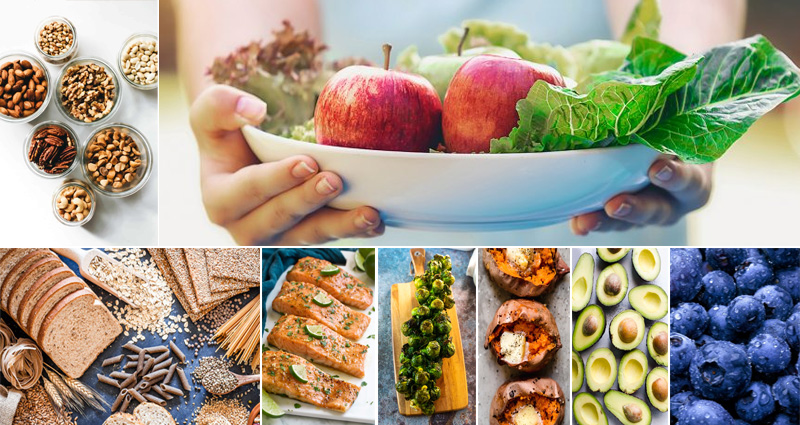You cannot feel better over a night or look younger with food. But over time, it can make a difference to have the right nutrients. BritainReviews have reviews of healthy food companies, and you can see which is the best and closest to you. That said, here are some healthy recipes that you can add to your daily meal.
1. Vegetables and fruits (and legumes)
All fruits, légumes, and vegetables contain nutrients, vitamins, minerals, and dietary fibres. Most calories are low and can make you feel full for long periods.
Legumes often consist of protein, making meat a valuable substitute. You can select any of these legumes to add to your daily meal; potatoes, lentil, soy, chickpea, lupine, baked bean, and kidney bean, among others.
Eating several vegetable choices will give your body various nutrients in this food category. It may also protect itself from chronic conditions such as heart disease, stroke, diabetes, and some types of cancer. You should look for vegan food delivery companies reviews to get some of these healthy vegetables!
2. Grains
Wholemeal or whole grain food, such as full-meal and grain bread, brown rice, quinoa, and oats, is best for you because it provides more fibre, vitamins, and minerals than processed cereal foods. Whole grain can protect against cardiovascular disease, type 2 diabetes, weight gain, and some cancers.
3. Salmon
It is known for its bright pink colour. This oily-fish is not only high in good protein but also in omega-3 fatty acids as well, which helps both the heart and brain. Bone-building vitamin D also comes from it. Nevertheless, it might be invisible for most people to eat salmon each day. Instead, you can eat it once a week to enjoy the healthy benefits.
4. Brussels sprouts
These nutrition-dense, little green spheres, which look like mini-cobs, are low-calorie and only 28 in a half-cup. A wide range of vitamins, including vitamin A, vitamin C, vitamin K, potassium, or folate, presents it. Brussels sprouts feature bioactive compounds, such as antioxidants, like other cruciferous vegetables, which are chemicals that avoid cell damage in your body.
5. Sweet potatoes
Sweet potatoes are rich in cardiac health, potassium and vitamin A vision-enhancing, particularly if you leave the skins on them. Sweet potatoes are fat- and cholesterol-free, have a rich sugar taste while still calorie-free.
Cubed sweet potatoes can easily be put in the microwave, or you can throw them in the oven and roast them in the oven with little oils and seasonings. Sweet potatoes can also add stews to the body and lasagnas and other casseroles to the sweet taste.
6. Avocado
Are you aware that people who eat avocado appear to become healthier than people who do not? This is based on a study conducted in 2013 with more than 17,000 people (funded by the Hass Avocado Board). The researchers found that avocado eats had less weightedness, fewer belly fats. They showed a significantly lower risk than non-avocado fans for metabolism—a category of symptoms that can cause diabetes and heart disease. Moreover, healthy fat in avocados can help to avoid wrinkles, while other nutrients reduce sun damage.
7. Blues berries
The dark-coloured berries are high in antioxidants, especially in vitamin C. Blueberries are also high in vitamin A and fibre, with 56 calories per 100 grams.
8. Nuts
Crunchy and satisfactory, nuts not only fill, but they also infuse healthy oils, protein, and vitamin E. Choose some kinds of nuts: almonds, walnuts, or even peanuts, or take a few mixed nuts. Make sure that they are not salted. Each ounce can have 200 calories or more depending on the type of nut you select, so restrict the daily consumption to a sprinkling to achieve its benefits without packing extra pounds.









